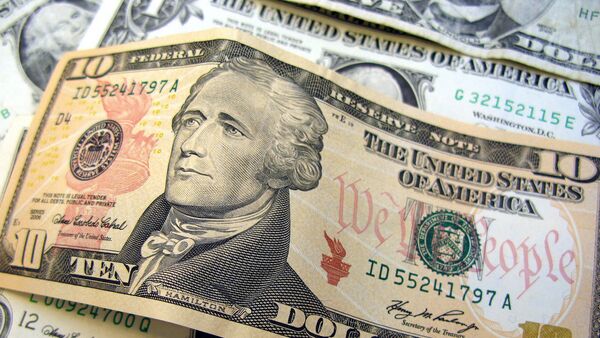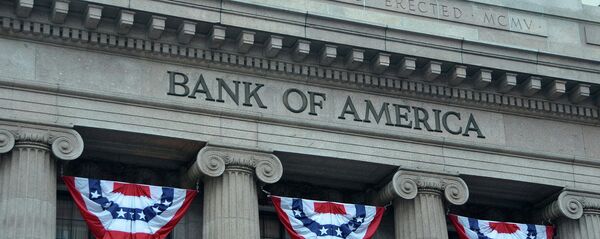WASHINGTON (Sputnik) — University of Pittsburgh Professor of International Affairs Michael Brenner said such practice is nothing new.
"There are stories like this every week," Brenner stated.
The Bank of America has agreed to pay $430 million and admit wrongdoing to settle charges that its Merrill Lynch wealth management unit for misusing customer cash to generate profits and issue misleading offering documents for structured notes, the SEC said in a news release on Thursday.
However, the profits Bank of America/Merrill Lynch made from their transactions were so great that the almost half a billion dollar fine is unlikely to deter them or other financial institutions from attempting similar operations in the future, Brenner predicted.
"All of the SEC deals leave the institutions ahead of the game so that there is absolutely no deterrent effect."
Fines imposed on giant institutions that do not seriously threaten their survival or continued profit flows are no substitute for holding individual senior executives criminally accountable for carrying out such maneuvers, Brenner insisted.
"Only when senior management is found personally and criminally responsible will there be a change in these practices."
Retired Brown University Assistant Professor of Economics Barry Friedman told Sputnik the SEC needed to publicize its agreement with Bank of America in the most favorable light to convince Congress and US public opinion that they were policing Wall Street effectively.
"It is a game of cat and mouse. The cat had to prove their computerized monitoring was adequate to enforce Dodd-Frank regulations," Friedman stated.
The 2010 Dodd-Frank Act attempted to restore government regulation on Wall Street that had been dismantled by the 1998 Gramm-Leach-Bliley Act, which abolished the separation between savings banks and investment banks imposed in 1934 by the Glass-Steagall Act, Friedman explained.
The deal with Bank of America and its Merrill Lynch unit was essential for the SEC to claim that the Dodd-Frank Act, which critics claim protects Wall Street, has enough power to be effective, Friedman further noted.
"Merrill Lynch is now a unit of a bank, as well as similar broker-bank companies like JP Morgan who has already made big settlements. If they can't be adequately policed under Dodd Frank, then we might have to fall back on the stricter separation of banks and brokers in Glass-Stegall."
An SEC investigation found that Merrill Lynch violated the SEC’s customer protection rule by misusing customer cash that rightfully should have been deposited in a reserve account.


